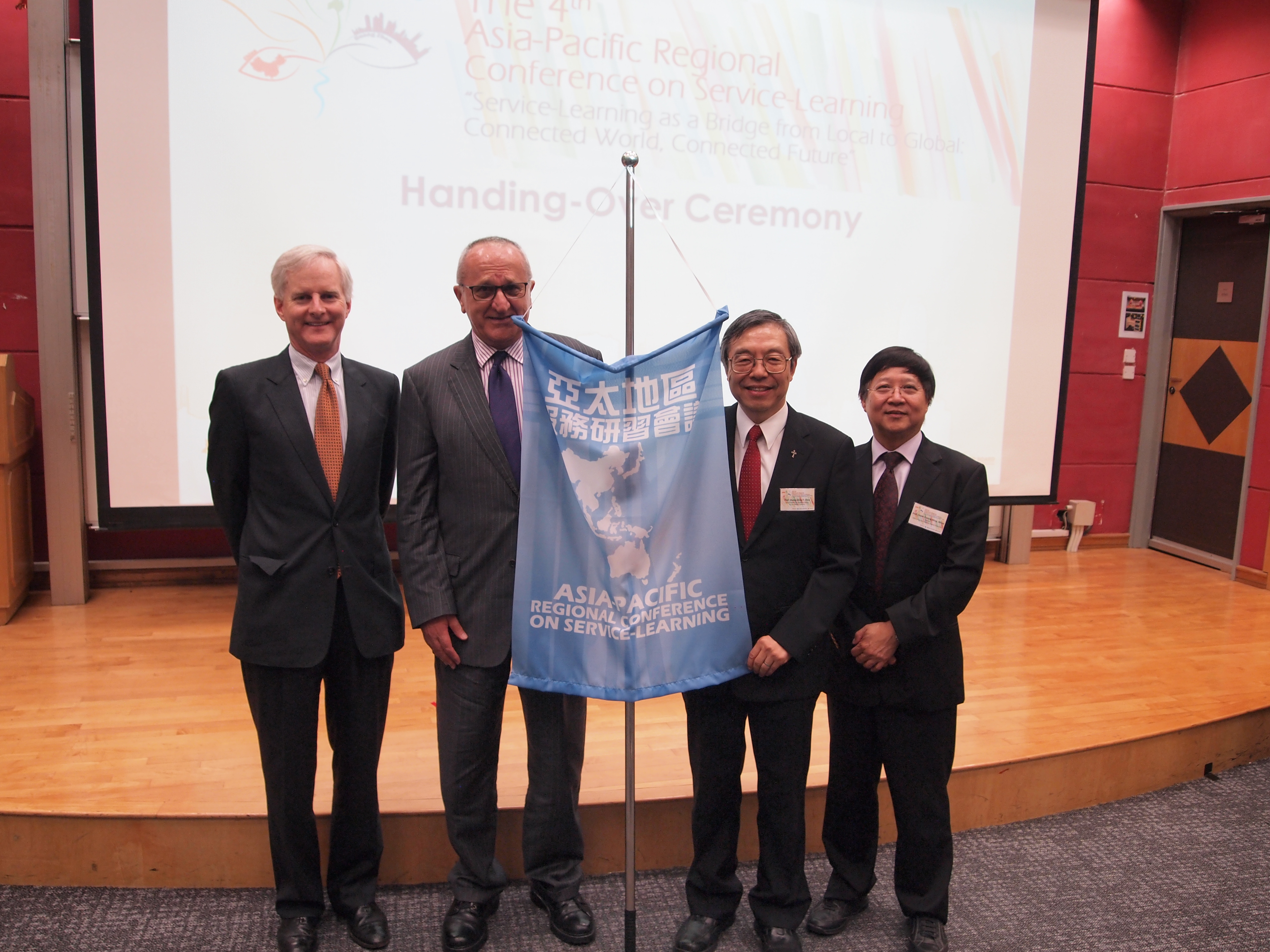Location
MD214, Paul Cardinal Shen Medical Building, Fu Jen University
Start Date
28-5-2015 4:30 PM
End Date
28-5-2015 5:40 PM
Description
Background: Following the footstep of Dr. Albert Schweitzer, most of the medical and nursing students in Taiwan would have "The African Dream", i.e., the chance to have medical service in remote areas, especially some remote areas in African countries.
Objective: This pilot study is to investigate the impact and effectiveness of a medical volunteer team from a medical college in Taiwan to a Maasai tribe in Engaruka, Tanzania, East Africa.
Introduction of the Team: The medical volunteer team started from 2011 which comprised mainly of medical and nursing students from Fu-Jen Catholic University, through the linkage of the local catholic missionary in eastern Tanzania. The rationales of this volunteer team are to enhance integration of learning and identity formation through service-learning activities.
/="/"> The team focus on the following objectives:
/="/"> (1) health education to high school students in Engaruka village;
/="/"> (2) health education to local village people in order to improve maternal health, reduce child mortality and combat HIV/AIDS, malaria and other diseases;
/="/"> (3) in collaboration to local governmental clinic to improve health and medical supplies. The complete cycle including preparing phase lasted for about 1 year. Although not yet being a formal curriculum, this volunteer team encourage lots of medical students to learn from service.
Method:
/="/"> (1)All the students who participated before 2014 were follow-up using descriptive and qualitative measures to investigate for the impact and effectiveness of such medical volunteer team.
/="/"> (2)From 2014 team, a comprehensive quantitative questionnaire called "Self-concept and service-learning form" was used to evaluate the value of such service-learning activity.
/="/"> (3)All the students who participated in previous teams (from 2011 to 2014) would do a retrospective questionnaire also to measure the impact and effectiveness. This retrospective questionnaire will be designed by using Likert scale.
Result: The complete results of these evaluation will be Paper presented in the up -coming conference.
Recommended Citation
Lee, C. C., Yip, P.-K., Chen, H.-T., Ladislas, N., Chwo, M.-J., Yang, C.-J., & Liu, L.-H. (2015, May). The African dream of medical and nursing students: A pilot study from a medical volunteer team to Tanzania. Paper presented at the 5th Asia-Pacific Regional Conference on Service-Learning: Love Journey: Community Engagement through Service-Learning, Fu Jen Catholic University, Taiwan.
Included in
The African dream of medical and nursing students : a pilot study from a medical volunteer team to Tanzania
MD214, Paul Cardinal Shen Medical Building, Fu Jen University
Background: Following the footstep of Dr. Albert Schweitzer, most of the medical and nursing students in Taiwan would have "The African Dream", i.e., the chance to have medical service in remote areas, especially some remote areas in African countries.
Objective: This pilot study is to investigate the impact and effectiveness of a medical volunteer team from a medical college in Taiwan to a Maasai tribe in Engaruka, Tanzania, East Africa.
Introduction of the Team: The medical volunteer team started from 2011 which comprised mainly of medical and nursing students from Fu-Jen Catholic University, through the linkage of the local catholic missionary in eastern Tanzania. The rationales of this volunteer team are to enhance integration of learning and identity formation through service-learning activities.
/="/"> The team focus on the following objectives:
/="/"> (1) health education to high school students in Engaruka village;
/="/"> (2) health education to local village people in order to improve maternal health, reduce child mortality and combat HIV/AIDS, malaria and other diseases;
/="/"> (3) in collaboration to local governmental clinic to improve health and medical supplies. The complete cycle including preparing phase lasted for about 1 year. Although not yet being a formal curriculum, this volunteer team encourage lots of medical students to learn from service.
Method:
/="/"> (1)All the students who participated before 2014 were follow-up using descriptive and qualitative measures to investigate for the impact and effectiveness of such medical volunteer team.
/="/"> (2)From 2014 team, a comprehensive quantitative questionnaire called "Self-concept and service-learning form" was used to evaluate the value of such service-learning activity.
/="/"> (3)All the students who participated in previous teams (from 2011 to 2014) would do a retrospective questionnaire also to measure the impact and effectiveness. This retrospective questionnaire will be designed by using Likert scale.
Result: The complete results of these evaluation will be Paper presented in the up -coming conference.
